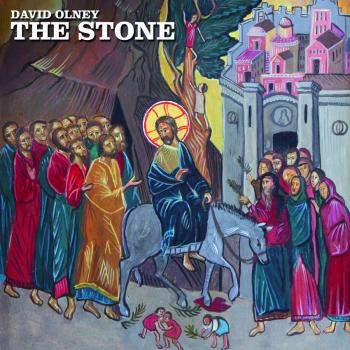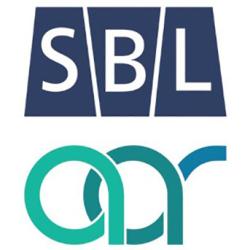Today in Sunday School we arrived at the last of our classes on the ways Jesus is presented in the canonical Gospels, focusing on the Gospel of John with its unique features such as the notion of Jesus as the Word-become-flesh and the pre-existence of the Son of Man. I gave a brief overview of my book (3 years of research in 15 minutes!) and my suggestion that the developments in the Gospel of John result from an attempt to defend Christian beliefs, during which process developments and expansions to Christian though take place.
We discussed whether the aim of Christians ought to be to combine the Gospels or to pick one that resonates with us; whether our aim should be to repeat what the Gospel authors said or to follow their example in using language of our time to address questions and issues of our time, just as they did in relation to their own historical setting.
The subject of the creeds came up, and as one might expect in an American Baptist context, voices soon were heard that said, in essence, “Whoa, wait a minute, what are these creeds you’re talking about exactly?” The classic creeds of Christian orthodoxy have no precise or official authority for Baptists, and yet they are part of our heritage, ignored and unknown but there as historical influences nonetheless.
Our next subject will be sharing our own answers to the question in Mark’s Gospel: Who do we, each of us, say that Jesus is?
In the mean time, I find myself wondering whether it is possible for someone to be both Protestant and orthodox. If orthodoxy involves assenting to the creeds of Nicaea and Chalcedon, then can one accept the doctrinal formulations of these documents while at the same time rejecting the authority of the church to define doctrine and anathematize dissenters? It is similar to the problem of Protestants assenting to the Bible the church defined while rejecting the church’s authority to do so. As a Protestant, I cannot simply defer to the authority of the church, but I must acknowledge that this stance prevents me from merely shifting to authorities the church produced, whether the Bible, the creeds, or something else. The challenge to authority that begins at the Reformation inevitably turns its attention to the Bible and rightly comes to question its situation as the ultimate authority as well. And so Liberal Protestantism, in a sense, ultimately works out the self-undermining nature of the Reformation cry of “sola scriptura”, when it develops critical approaches to the Bible. Conservative Protestants, on the other hand, are forced to resort to “picking and choosing” from orthodoxy in the way they claim to detest (but nevertheless do) when it comes to the Bible.
If the church and then the Bible are undermined, we should not think that our human reason escapes unscathed. The limitations of our perception, our proneness to deception and even self-deception, have also come to light as psychology and other fields have made advances. And so what are we left with? Much uncertainty, and the need for humility. But if humility results from an exercise in criticising authority that ultimately turns on itself and becomes self-critical, then is it inappropriate to see in this an outworking of the Christian Gospel, or at the very least a result that is in keeping with it in important ways?















